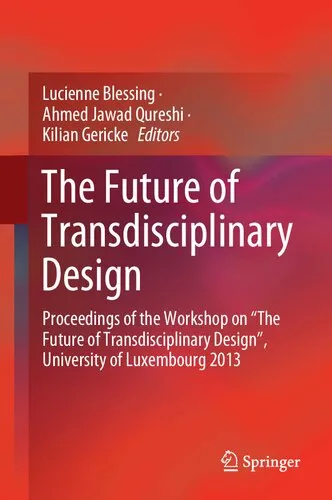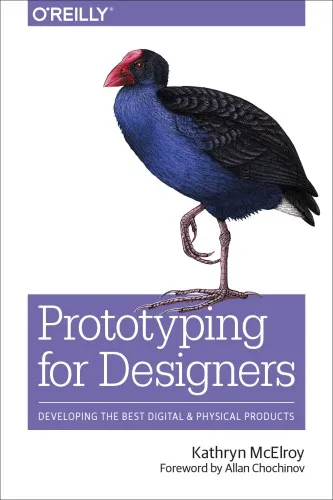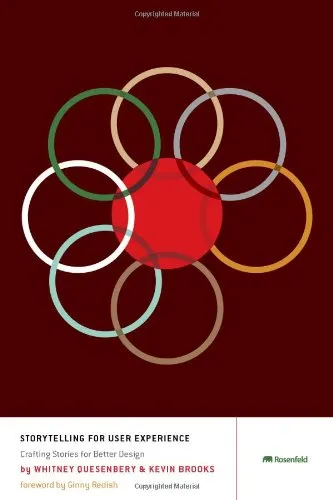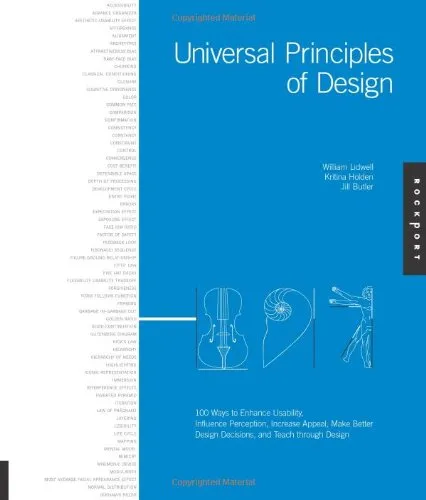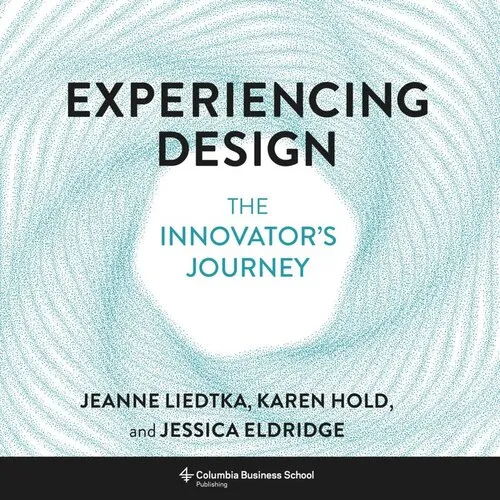The Future of Transdisciplinary Design: Proceedings of the Workshop on “The Future of Transdisciplinary Design”, University of Luxembourg 2013
4.3
Reviews from our users

You Can Ask your questions from this book's AI after Login
Each download or ask from book AI costs 2 points. To earn more free points, please visit the Points Guide Page and complete some valuable actions.کتاب های مرتبط:
Introduction to "The Future of Transdisciplinary Design"
The evolution of design as a discipline has always been closely linked with the capacity to incorporate diverse fields, to innovate, and to face emerging challenges across various sectors. "The Future of Transdisciplinary Design" delves into these aspects, exploring the amalgamation of different disciplinary approaches to harness the power of design thinking. Derived from the proceedings of the influential workshop held at the University of Luxembourg in 2013, this compilation probes into the practice, methodologies, and future trajectories of transdisciplinary design.
Transdisciplinary design transcends traditional disciplinary boundaries, creating an integrative approach that combines insights from multiple fields and stakeholders to tackle complex societal challenges. This book aims to equip practitioners, researchers, and students with a conceptual framework and practical insights into how these collaborative design methodologies can drive innovative solutions.
A Detailed Summary of the Book
The book is structured around the collaborative insights presented during the workshop sessions, which brought together experts from design, engineering, social sciences, and beyond. Each chapter delves into case studies and theoretical discussions that emphasize the role of transdisciplinary methodologies in enhancing the effectiveness and reach of design projects. Contributors discuss the dynamic interplay between diverse knowledge bases and how this interaction fosters not only innovation but also adaptive and resilient solutions.
Significant highlights include discussions on how transdisciplinary design is instrumental in tackling pressing issues like sustainability, urbanization, and digital transformation. The book also investigates how technology can be leveraged in design processes to integrate diverse insights seamlessly. By providing a rich tapestry of academic inquiry and practical examples, the book underscores the depth and breadth of back-and-forth learning between disciplines that transdisciplinary design necessitates.
Key Takeaways
- Understanding the significance of transcending disciplinary boundaries to tackle complex challenges.
- The role of technology in facilitating transdisciplinary collaboration and innovation.
- Insights into the integration of diverse perspectives, including social, environmental, and technological views, to enhance problem-solving.
- Emphasis on the need for new frameworks and approaches in education and practice to foster transdisciplinary competencies.
- Strategies for implementing transdisciplinary design in real-world contexts.
Famous Quotes from the Book
"In a world of complexity and interconnected challenges, the strength of design lies in its ability to weave disparate strands of thought into a cohesive narrative of innovation."
"Transdisciplinary design is not the future waiting to unfold; it is the present calling for an evolution in how we perceive and enact change."
Why This Book Matters
The book is pivotal in bridging the gap between theoretical exploration and practical application in the field of design. At a time when the world's challenges are becoming increasingly global and complex, the need for a transdisciplinary approach is more urgent than ever. The collected insights in "The Future of Transdisciplinary Design" serve as a roadmap for educators, industry leaders, and policymakers to foster environments where innovative collaborative solutions can thrive.
Furthermore, the book's insights into educational strategies signify its importance in shaping future curricula that prepare students not only to inhabit but to actively improve a world that demands multifaceted solutions. By emphasizing an integrative approach, the text encourages a more responsive, adaptive, and holistic view of design thinking that resonates across sectors and cultures.
Free Direct Download
You Can Download this book after Login
Accessing books through legal platforms and public libraries not only supports the rights of authors and publishers but also contributes to the sustainability of reading culture. Before downloading, please take a moment to consider these options.
Find this book on other platforms:
WorldCat helps you find books in libraries worldwide.
See ratings, reviews, and discussions on Goodreads.
Find and buy rare or used books on AbeBooks.
1296
بازدید4.3
امتیاز0
نظر98%
رضایتReviews:
4.3
Based on 0 users review
Questions & Answers
Ask questions about this book or help others by answering
No questions yet. Be the first to ask!
